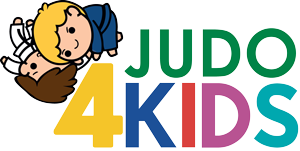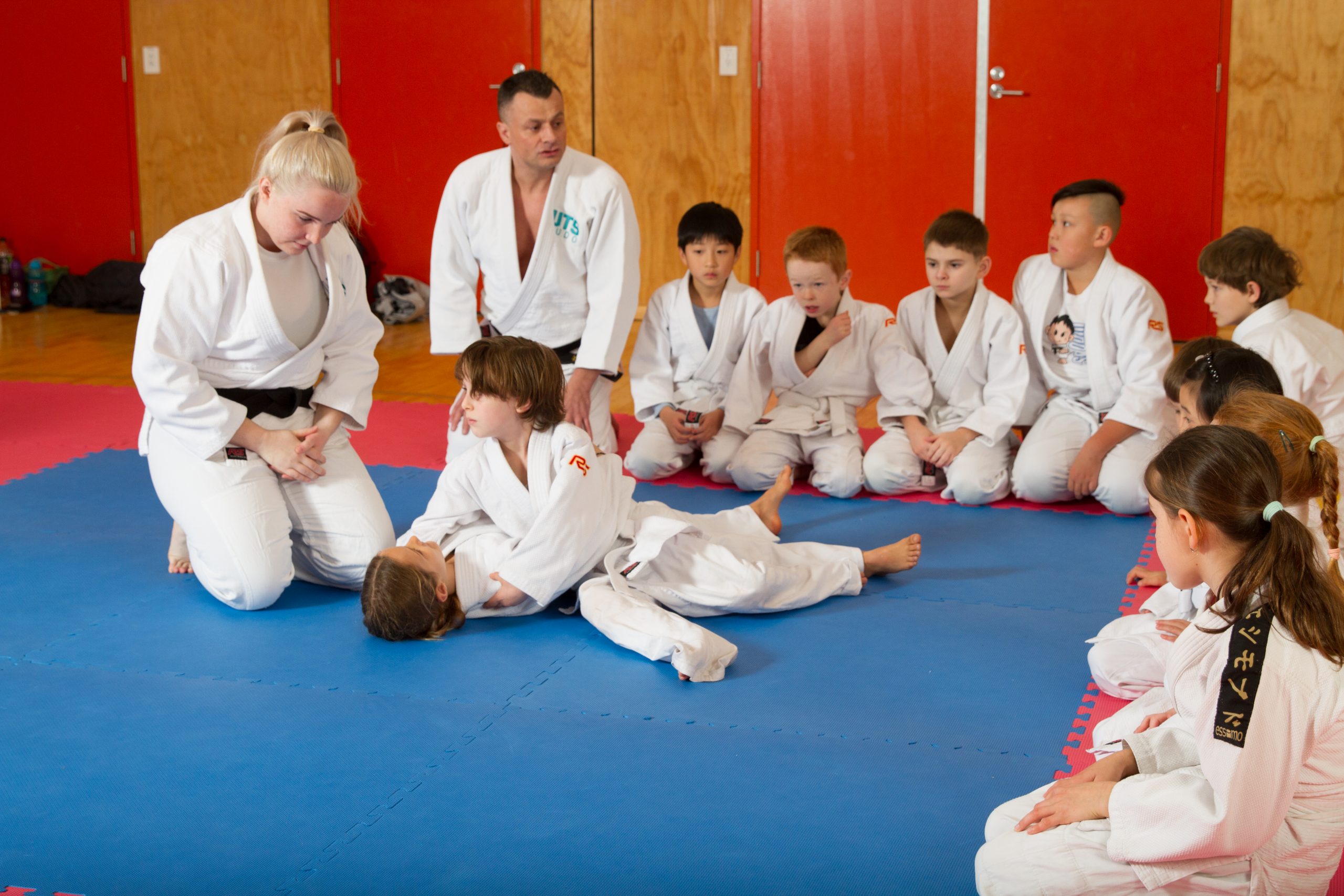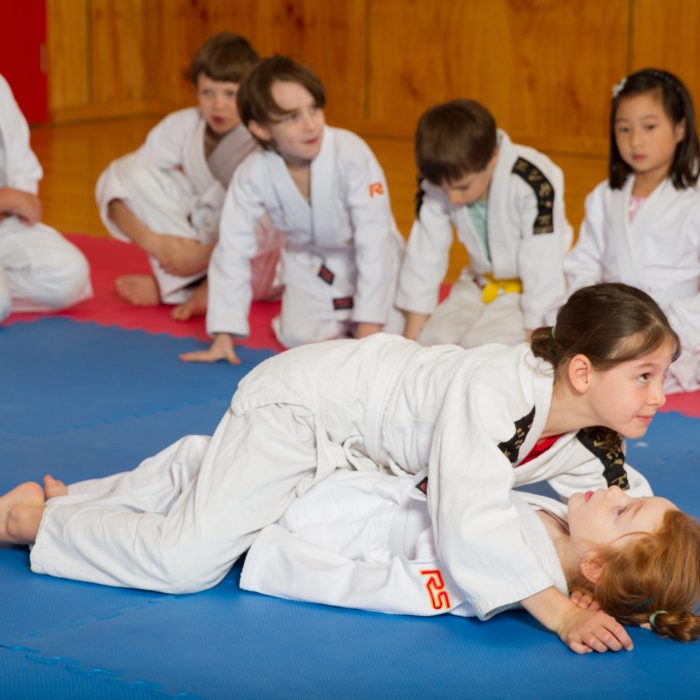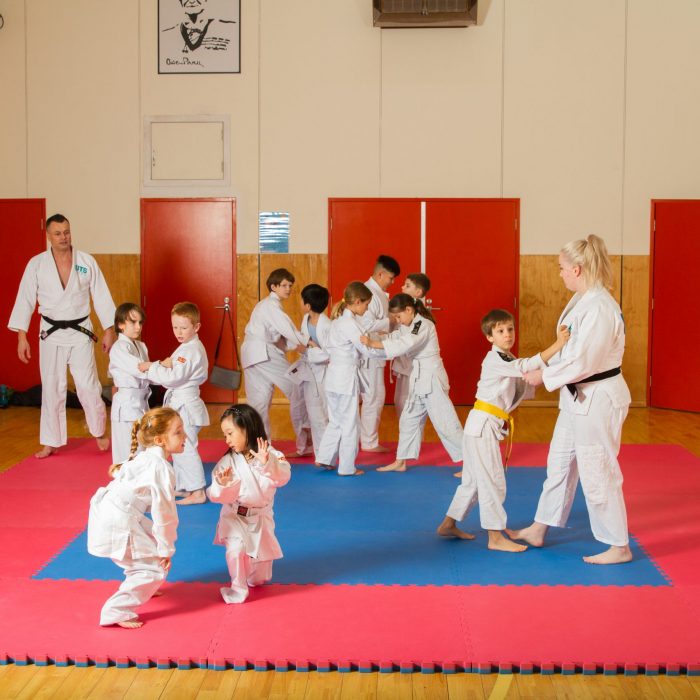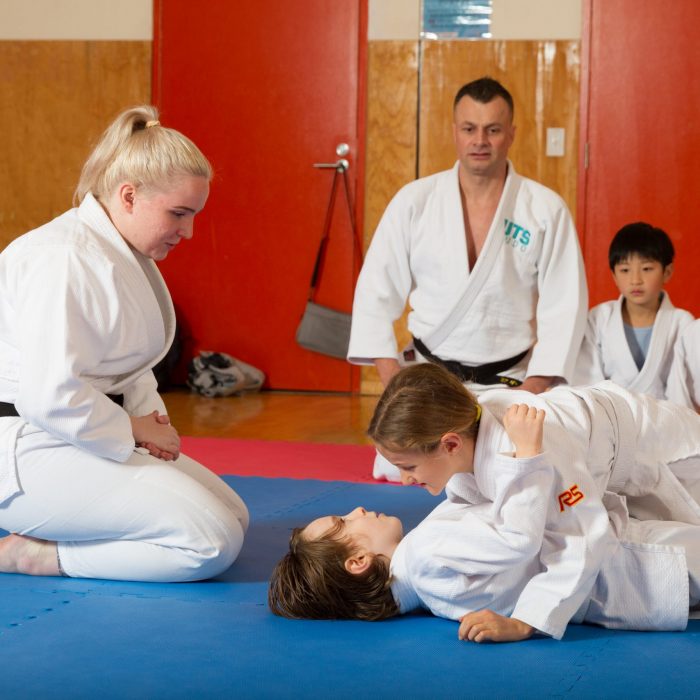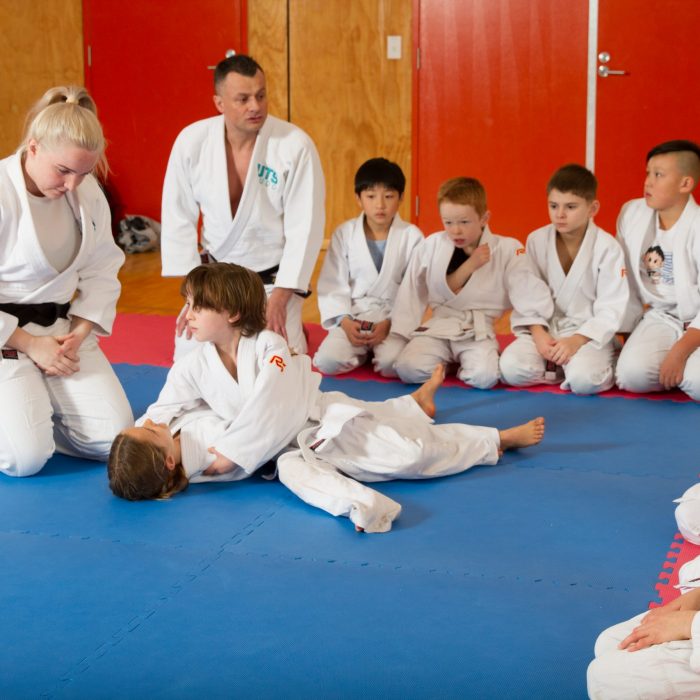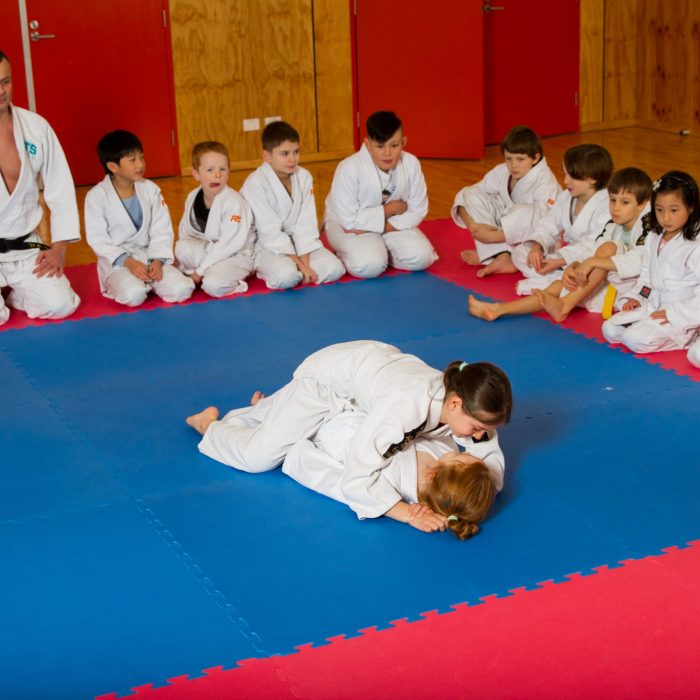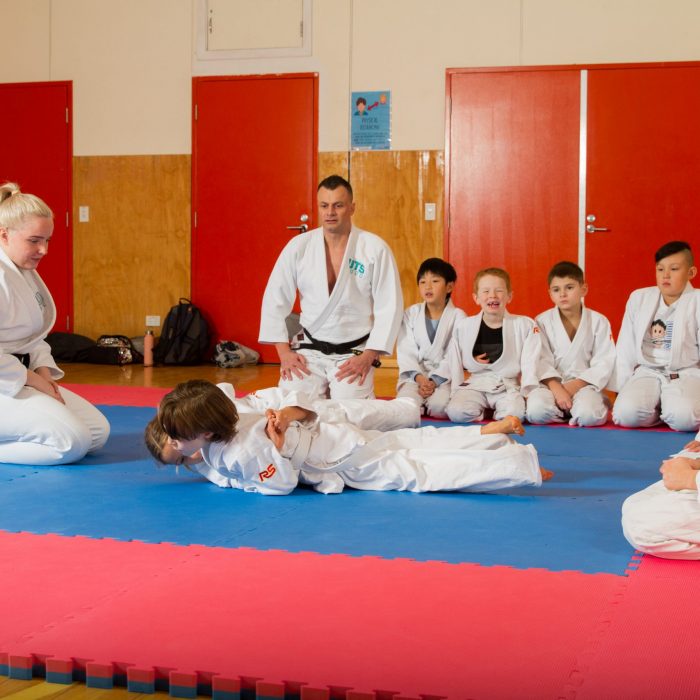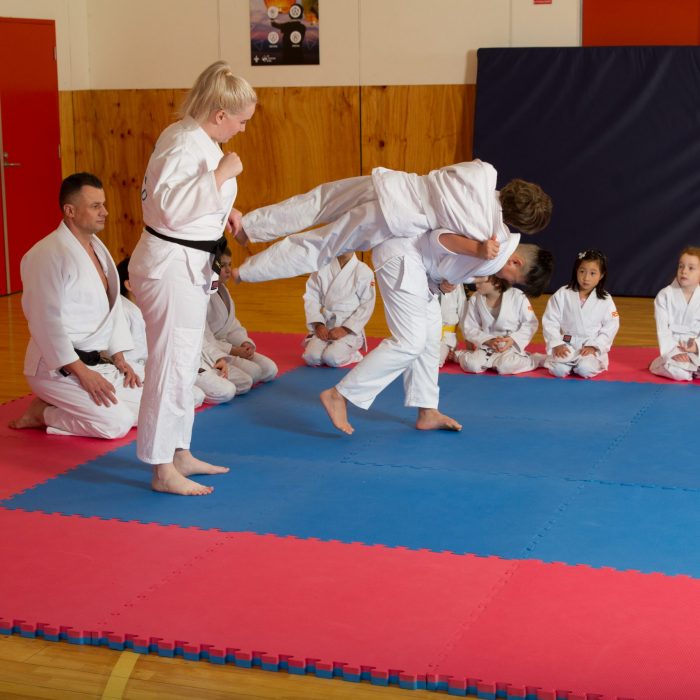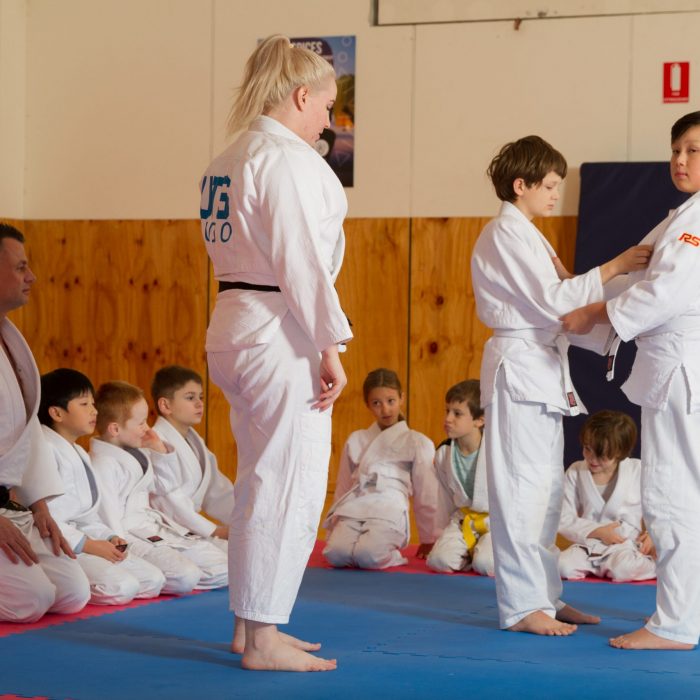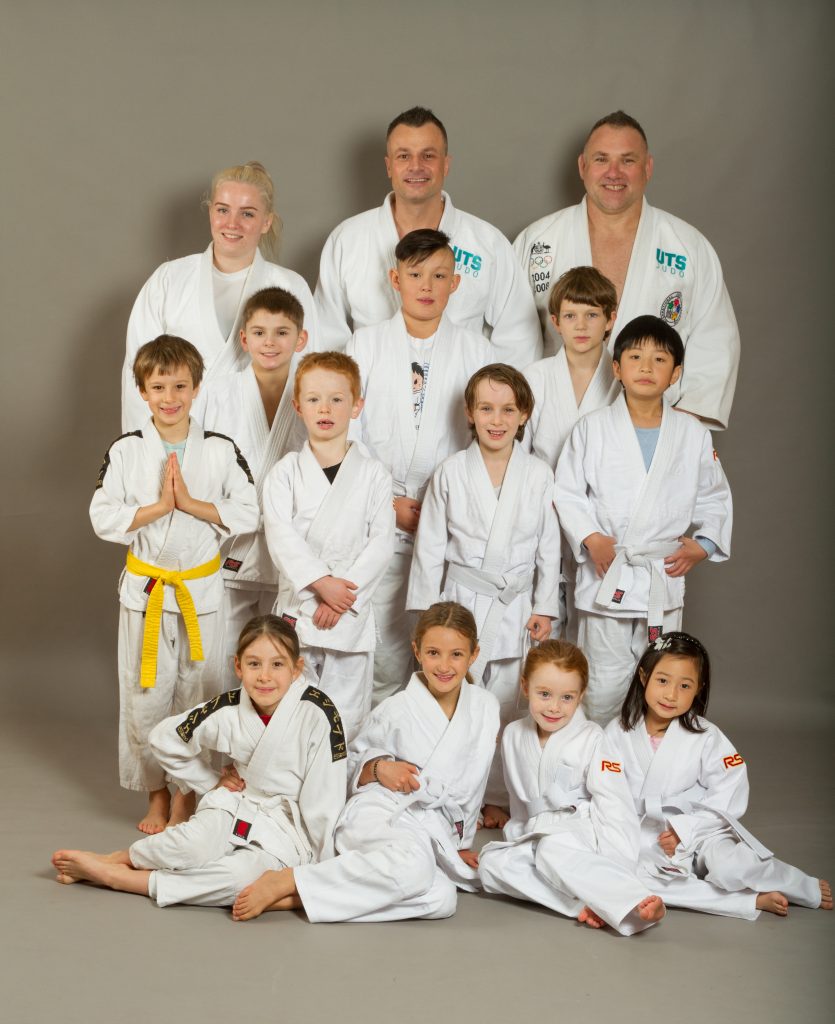
Judo for Kids
When you talk with parents whose children have grown up, often their biggest regret was not providing their children with more opportunities. Opportunities which lead to experiences, that build their confidence, their relationships, and shape their character.
Judo is a really wonderful ‘opportunity’ parents can provide their children, in so many ways!
If you want your child to learn about the wonders of judo, then classes are the way to go. The same goes for you, too – we have classes for every age and every level of ability.
The best thing to do is to sign up for a class for yourself or your child to get in the mix and try it first-hand. You’ll enter the world of judo and find out exactly why UNESCO and the World Health Organization state that it’s the best sport in the world for your health.
We have classes for children broken down by age range. You can pick a class for 5–6-year-olds, 7–8-year-olds, 9–10-year-olds, or 11–15-year-olds. You can also select an adult class for yourself and choose the right one for the level of experience you have.
Getting in the right class is important because and every class focuses on different age-appropriate moves and concepts. When you apply for a class, please let us know the level of experience either you or your child has at judo. That will help us put them in the right group and get your child integrated more quickly.
As you or your child gains experience, you’ll see the growth in yourselves and the fun to be had in this exciting sport. We think that once you or your child start with judo, you won’t want to stop!
To quote Co- Founder and President of UTS Judo ~ Roman Garai “My Dad was a Judo trainer and the very first day I entered his dojo; the experience changed my life forever!” For many children the realisation that Judo is life changing can take a little longer. For some life just changes and they don’t even realise that it has. When it is said that Judo is so much more than a sport they really mean it, as judo teaches children so many valuable lessons and daily habits that help to mould their personality and character, habits that stay with them for the rest of their lives.
Sport in general builds so much more than an athlete, sport should build a better person. The sport of Judo in particular, develops discipline, tenacity, good manners, drive, punctuality, strength, dedication, perseverance, toughness, and most importantly, confidence – all character traits that are essential to success. In our guidance ‘as a parent’ we need to encourage and guide our children into experiences which help develop their character, their moral compass, their passions and their respect of their peers, their teachers and of society. Remember, society respects highly, a person who wins with humility, and loses with grace.
Judo is a martial art, and as a result a combat sport, when children train in the sport of judo, in the dojo, this training is actually preparing them for the challenges of life that they will be faced with throughout their life. Through the discipline of judo, competing within the rules, and following the traditions, children learn many valuable lessons, not the least of which is perseverance, fair play, respect and persistence. Judo training, teaches children that ‘winning’ is not the most important part of sport, that its more about the time and effort along with the dedication applied to the training and ‘digging deep’ to find the courage to compete, that separates the sport of Judo from other sports.
Parents often find one of the challenging aspects of parenting is teaching and indeed delivering discipline to our children. Parents the world over, have been so very grateful to the sport of Judo delivering this crucial element of discipline in building, our child’s value system, confidence and pride in their achievements.
Junior judoka also learn the lesson of responsibility, or more specifically, taking responsibility for one’s own success or failure. They learn that if they want to succeed in judo through belt promotion levels, and competition, they must turn up, pay attention, and concentrate on learning their techniques. Failure, on the other hand, can be directly attributed to how little effort they put into their lessons and training. And since children like to have fun, they also learn how much fun it is to succeed in games, be promoted pass a belt promotion, or win in shiai. In time they learn that the medals and trophies are just the icing on the cake. It is the peer acceptance and respect in the dojo that are the real rewards. Recognition and a pat on the back from stern-faced Sensei are more valued and last much longer than a coloured ribbon.
